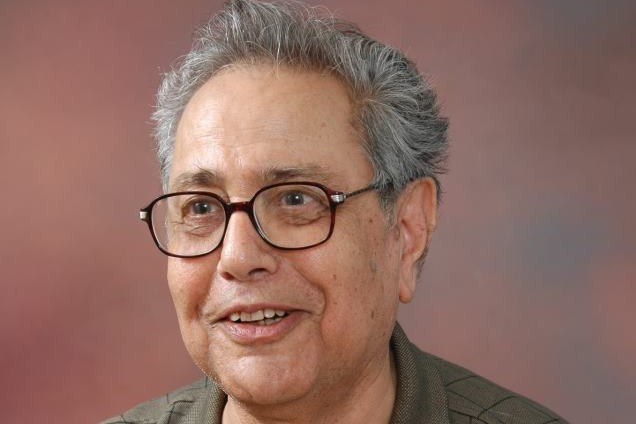Well, I am an avid reader of both, the high clibre reading material as also of trash. On the internet, I read something like 10 to 15 newspapers of Urdu and English every day. It was indeed a surprise, both pleasant and unpleasant, for me as a worshipper of Allama Iqbal, when I came across a Pakistan Post report in a back issue (May 16, 1996), reproduced now by a literary magazine. In this report, Muneeb Iqbal, Dr. Javed Iqbal’s son, has revealed a few facts which only he, as a grandson of the grand man, could do.
Muneeb makes some very disturbing but pertinent points in this write-up, and lest I am accused of heresy, I’ll reproduce, verbatim, the words of this hereditary genius. For one, he says that his father, Javed Iqbal, is a progeny of Allama Iqbal’s old age. The son grew up, looking at his father as an infirm old man, incapable even of moving about freely. So, Javed Iqbal could portray his father’s profile only as a child’s idealized image. He adds that the true Iqbal was different from what is portrayed by his son, Javed Iqbal.
Muneeb’s revelations include some unpleasant pieces of information. He says that Allama Iqbal never had a satisfactory married life and that led him to go and watch mujra almost every day. His first marriage was held in 1895 when he had just passed his Matriculation exam. When he returned from Europe, he found that he could not get along with his wife, so he started living apart though there was no divorce. Then his elders found a new match. “His nikah was performed with my grandma, but rukhasti could not take place,” Muneer adds that during this period, the proposal for a bride from Ludhiana also came to a final stage. “He refused to marry my grandmother. My grandma then wrote a letter to him that since the nikah has been solemnized, if he didn’t let her become his wife, she would hold him guilty on the reckoning day in heaven.”
Here the story becomes more intriguing. Muneeb says that his grandfather then repeated the nikah ceremony with his grandmother but also got married to the lady from Ludhiana. Both wives lived together, but both died before Iqbal himself. Muneeb further says that Aftab Iqbal, who was a son from the first wife of his father, was encouraged by his rich maternal family to speak publicly against his father. Muneeb goes on to tell the story that Aftab Iqbal, after his own maternal grandfather’s death, became a pauper and occasionally came to Allama Iqbal for money, but he has always turned away with harsh words.
About mujra, let me add a few words to what Muneeb has said. Mujra was a part of the culture of the upper class landed aristocrats. The attendees, who were called tamashbeen, could not touch the dancing girl, the tawaif, and only appreciated her art by showering money on her. So, if Iqbal followed this tradition, he was no different from any other….including his friends, Sir Joginder Singh and Zulfiqar Ali, the Nawab of Malerkotla who were his evening company every day. Did Allama Iqbal drink? Muneeb was asked, as Javed Iqbal had always given a vague answer to this question. His answer was both ‘yes” and ‘no’. He said, if Iqbal did drink, then it was always outside his own home.
Muneeb further talks about the financial problems of his grandfather. He was always close-fisted. He never spent on items of luxury. His bills, even for the groceries, were always overdue, but the bunia never insisted on the payment. He just stopped the supply of grocery items. Once Iqbal approached Sir Shadi Lal, the then Chief Justice of Punjab, to give him a seat on the bench, but the latter declined. The positive side of this episode was that if Allama Iqbal had become a judge of the high court, he could not have conceived the idea of Muslim homeland – at least in its sketchy form – which Qaid Azam Jinnah later achieved.
Muneeb, to sum up, his formulations, has not touched on anything new. The topics he has chosen to speak on, are not literary or philosophical; at best, they portray just one hidden dimension of Iqbal’s life. The fact that his huqqa حقہ smoking had resulted in the cancer of throat and lungs and that he lost one eye altogether are well known and Muneeb has not added anything new. All in all, the grandson’s views of his grandfather are not complimentary. However, I must add that these are not censorious or disparaging either.




